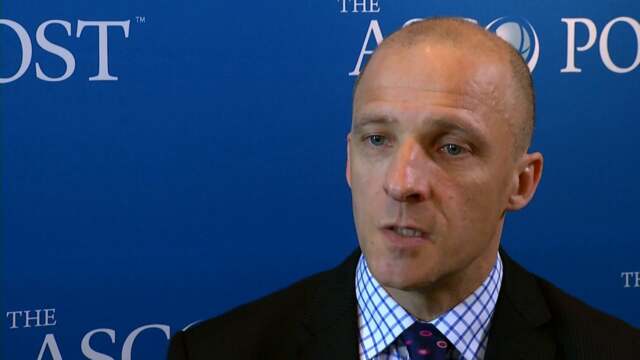Axel Grothey, MD, on Optimizing Systemic Therapy Selection in Metastatic Colorectal Cancer
2015 NCCN Annual Conference
Axel Grothey, MD, of the Mayo Clinic Cancer Center, discusses how the NCCN Guidelines can help oncologists make strategic choices of the various agents available to treat metastatic colorectal cancer, individualizing patient care.
John A. Thompson, MD
John A. Thompson, MD, of the Fred Hutchinson Cancer Research Center and Seattle Cancer Care Alliance, discusses the latest immunotherapeutics for advanced melanoma, including pembrolizumab, trametinib, nivolumab, and dabrafenib.
Eric Jonasch, MD
Eric Jonasch, MD, of The University of Texas, MD Anderson Cancer Center, discusses the progress being made in kidney cancer treatment and the clinical trials that focused on sunitinib, sorafenib, and everolimus, among others.
Amy Cyr, MD
Amy Cyr, MD, of the Siteman Cancer Center at Barnes-Jewish Hospital and Washington University School of Medicine, discusses advances made in the treatment of early-stage breast cancer: less radiation and a shorter course, the rising use of molecular profiling, and less invasive surgery and reduced amounts of surgery.
Anthony J. Olszanski, RPh, MD
Anthony J. Olszanski, RPh, MD, of the Fox Chase Cancer Center, discusses the advances in immunotherapy generally and for melanoma in particular.
Ingrid A. Mayer, MD
Ingrid A. Mayer, MD, of the Vanderbilt-Ingram Cancer Center, discusses the evolution of endocrine therapy for metastatic breast cancer.





